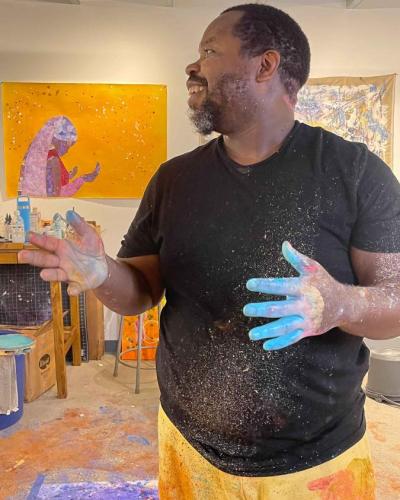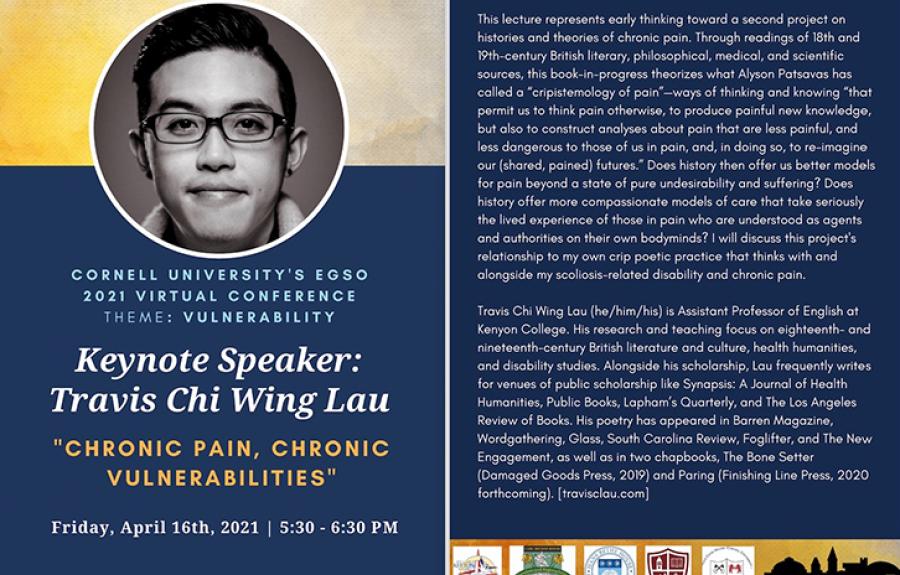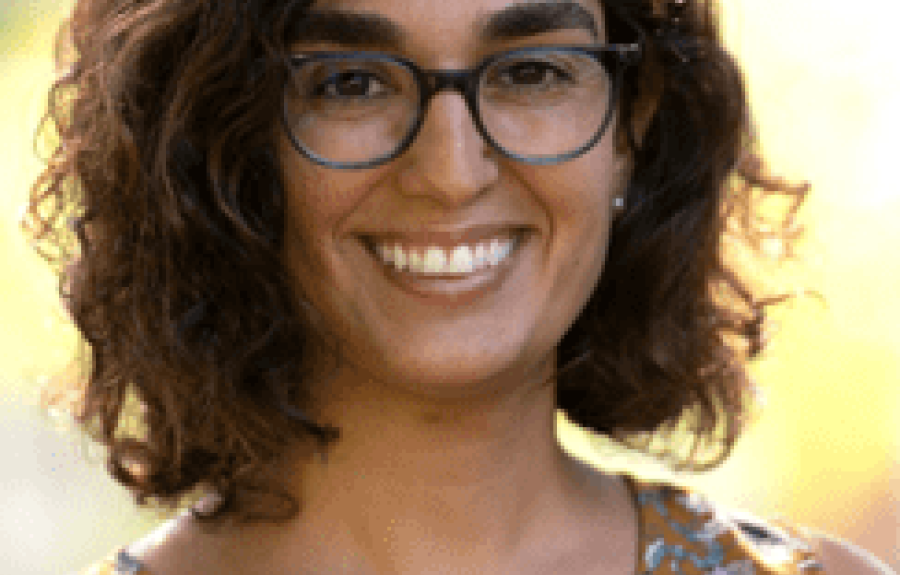2022 Hybrid Conference: Aspiration
—Ted Chiang, “The Great Silence,” Electric Literature, 2016
“Aspiration,” as Ted Chiang’s short story highlights, is both a biological process and an ideological one. To aspire toward something suggests a striving; to aspire is to imagine or yearn for; to work toward something bright and beautiful, something worth reaching for, or dreaming of. When situated in the body, aspiration emphasizes the landscape of the lungs, the mouth, the throat, evoking the activities of breathing, voice, and song; to breathe is what allows us to speak, to sing, to sound. However, to aspirate also carries negative connotations, both ontological and ideological: to choke, to suffocate, to strangle; the political valences of “I can’t breathe” and its relation to police brutality and structural inequality; the hovering presence of COVID-19; ecological violence and pollution; cruel optimism, suspension, haunting, and the rejection or failure of futurity. Disrupted aspiration, whether medical, ecological, or structural, reminds us of the precarious and vulnerable nature of aspiration's dual meaning.
EGSO 2022 seeks out papers and artistic works that explore how we as scholars, artists, and citizens might delve into the specifics and connections between these two seemingly at-odds definitions. What possibilities and limitations, then, are carried on the breath? How do we find either conformity or resistance in the act of aspiring? What pressures stop the literal and metaphorical air flow in our bodies and communities? Is, as Chiang claims, this confluence “no coincidence” -- or is the evolution of this term a cruel irony in an uncertain and violent political moment? What connections might we draw between the body and the world it occupies? What are the affordances and limitations of reaching toward an individual or shared horizon?
2021 Virtual Conference: Vulnerability
April 16th - 17th, 2021
“Vulnerability,” defined as a sense of exposure or openness, carries multiple connotations. As a source of intimacy in intersubjective relationships, it is associated with care and frequently valorized, evoking trust, honesty, and emotional sincerity. By contrast, vulnerability as a social condition tends to connote negative images —of contingency, precarity, and threat, particularly at the points where economic and political infrastructures begin to fail or decompose. Our various ways of being exposed thus include not only a sense of closeness and dependency, but also an unwilled receptivity and susceptibility to harm. In both cases, however, to be vulnerable, one must not only be open, but also be at risk. The language of risk is inherent to vulnerability, whether deliberate or incidental. What, then, is at risk when we invoke vulnerability, and for whom? How does the problematic of vulnerability shape our thinking about community, agency and resistance, especially at a time when illness and racialized violence impinge on us? What are the possible affordances, threats, and repercussions of being made open or making oneself open?
Friday, April 16
5:30-6:30 PM: Keynote Speaker, Travis Chi Wing Lau, "Chronic Pains, Chronic Vulnerabilities."
6:30-8:00 PM: Q&A and reception to follow
Saturday, April 17
9:00 AM-6:30 PM: Panels with Social Hour to follow
Past EGSO conferences include:
2020 Conference: Proximity
March 6th - 7th, 2020
As knowledge travels through time and space, proximity emerges as an increasingly important category for critical inquiry. How does our understanding of proximity change our intellectual landscape? What issues seem distant from us? Which objects, texts, or historical moments feel more proximate in the present? How does the idea of proximity shape our understanding of political, economic, ecological, and social issues? Whether addressing the position of the humanities with regard to geopolitical conflicts or the ways in which history becomes entangled with the present, matters of closeness and distance must be considered urgent intellectual problems.
We are excited to announce that our keynote speaker for the conference will be Nadeen Kharputly (Washington and Lee University).
This conference is sponsored by Cornell’s EGSO, and we encourage participation from graduate students in English and adjacent fields such as Romance Studies, Comparative Literature, History, Social Sciences, and Philosophy.
Keynote Speaker Bio:
Nadeen Kharputly thinks and works at the intersection of literary and critical ethnic studies, interrogating the particular forms of responsibility attached to authors working in economies of narrative scarcity, to borrow Viet Thanh Nguyen’s language. She is particularly interested in the tensions between artistic prerogative and the burden of representation that Muslim American authors and cultural producers face. Her book manuscript, tentatively titled, The Burden of Humanization: Race, Representation, and Responsibility in Muslim American Culture, examines the growing archive of contemporary Muslim American literature in relation to broader multiethnic U.S. literatures, particularly Asian American and African American writers of the twentieth century.
Nadeen received her PhD in Literature from the University of California, San Diego. She is currently a Visiting Assistant Professor in English at Washington and Lee University, where she teaches 20th- and 21st-century American literature. She has previously taught in Ethnic Studies at UC San Diego. Her work appears or will appear in Encyclopedia of Women and Islamic Cultures; Media, Myth, and Millennials: Critical Perspectives on Race and Culture; and Society & Animals.




